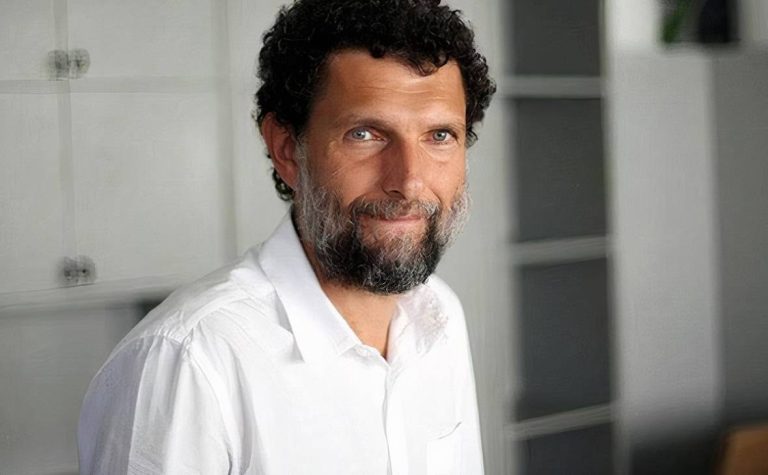The recent decision by the Civil Court, First Hall of Malta, denying Mehmet Tatlici’s enforcement request of a €660 million ($740 million in its original) defamation judgment against Ugur Tatlici is a significant victory for free speech, due process, and the principles of fair justice.
As a journalist who has been closely following this legal battle, this ruling goes beyond a mere legal technicality. It sends a clear message that European courts will not blindly enforce U.S. judgments that fail to meet fundamental standards of fairness, proportionality, and due process.
This ruling reaffirms the European Union’s strong stance against Strategic Lawsuits Against Public Participation (SLAPPs) and the misuse and abuse of foreign courts.
A Judgment That Raises More Questions Than Answers
The original ruling in the United States was framed as a defamation case initiated by Mehmet Tatlici against his stepbrother, Ugur Tatlici, alleging that defamatory content was published against him.
However, the judgment was met with several critical concerns.
First, the U.S. court proceeded with the case and made its decision without Ugur Tatlici or his counsel being present to defend himself. This is a major issue when other countries are asked to accept such a judgment. Additionally, the court ordered Ugur Tatlici to pay $740 million—an astronomical sum for a defamation case, far exceeding what European courts would deem proportional. The case was filed in Florida, despite both brothers being Turkish citizens and the alleged harm occurring in Turkey.
But there’s more to this story than meets the eye: the U.S. judgment itself might have been riddled with fraud.
Separate legal proceedings in Turkey have unearthed these troubling details and suggested that the entire case was built on lies, including forged documents, false testimony, and even a fictitious real estate project that never existed and could never have existed.
Mehmet Tatlici and his associates allegedly “cooked up” this scheme to manipulate the U.S. judges and juries to present misleading financial assessments and perjured witnesses to secure a massive payday. If these findings are true, Malta’s decision to reject the judgment becomes even more crucial in preventing the abuse of foreign legal systems.
A Win for Europe, a Win for Justice
The Maltese court’s rejection of the U.S. defamation ruling represents a powerful stand against judicial overreach and SLAPP lawsuits, which are designed to oppress critics by overwhelming them with legal costs and financial threats. Judge Toni Abela ruled against this U.S. judgment enforcement, citing public order concerns and the disproportionate nature of the ruling. Essentially, the court declared, “This is not how we do things in Europe,” refusing to allow an excessive and unjust punishment.
Furthermore, Judge Abela’s decision explicitly highlights the awareness of Mehmet Tatlici’s legal team regarding the nature of the U.S. judgment, meaning that this was not a legitimate pursuit of legal redress, but rather a case weaponized to suppress the adversary.
By rejecting this enforcement, Malta reaffirmed that legal systems should not be exploited as tools for revenge and censorship. Unlike in the U.S., where defamation cases often result in massive financial penalties, European courts emphasize fairness, proportionality, and the right to a proper defense.
Millions for Damages, Pennies for Fees
As previously reported, while demanding a staggering sum from his stepbrother, Mehmet Tatlici has simultaneously sought legal aid for his fees in Turkey, claiming financial hardship. This begs the question: if he is truly struggling to afford court fees, how can he justify pursuing such an extravagant judgment?
While Mehmet Tatlici is fighting to enforce an outrageous judgment, real people struggle to afford legal representation in Turkey or elsewhere for custody battles, workplace disputes, and basic human rights cases. Meanwhile, this billionaire, who could afford an entire team of elite lawyers and law professors without blinking, wanted “financial assistance” from the system meant for the vulnerable.
This case was never about justice—it was about one billionaire’s bruised ego. Today, Malta has set a crucial precedent in favor of fairness and legal integrity.
Malta Defies the Dollar; Will Turkey Be Next?
While this decision is a significant victory, the fight is not over. Wealthy litigants like Mehmet Tatlici will continue leveraging their resources to manipulate legal systems and intimidate opponents. They will continue to “shop” for the forum with best laws, use intimidation tactics, and abuse legal loopholes to get what they want.
But this case proves that justice can still prevail. It sets a precedent for other European nations to follow Malta’s lead in protecting free speech and rejecting abusive defamation judgments masked as legitimate claims.
Much like the Maltese court’s rejection of the U.S. judgment, Turkey now faces a critical test of its legal system’s independence and commitment to justice.
Will it uphold the principles of proportionality and procedural fairness, as emphasized in European legal standards, or will it permit a legally dubious and excessively punitive judgment from the United States—where defamation awards often reach astronomical sums—to undermine its own judicial norms?
The decision will set a crucial precedent—for the enforcement of foreign judgments in Turkey and for how nations respond to the increasing use of U.S. courts as tools for financial and legal pressure on the international stage.






